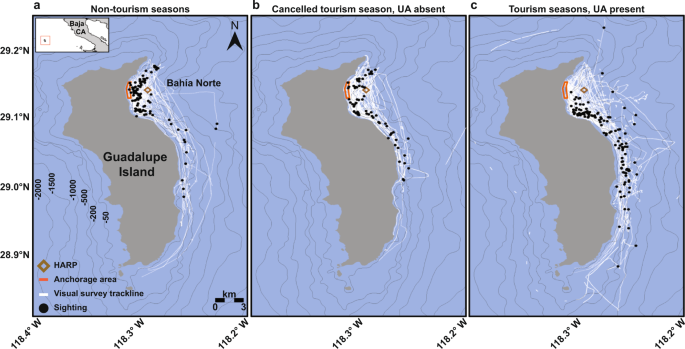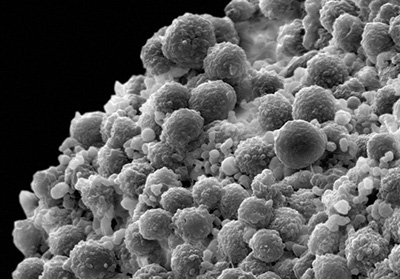メキシコ・グアダルーペ島沖のアカボウクジラの研究が発見へとつながった Study of Cuvier’s beaked whales off Mexico’s Guadalupe Island led to discovery
2022-10-31 カリフォルニア大学サンディエゴ校(UCSD)
超音波防汚装置は、圧力と振動によって船底に藻類やフジツボなどの海洋生物を付着させないようにする装置である。
この装置は、海洋哺乳類が通信や獲物の発見、環境のナビゲーションに使用する周波数帯と同じものを使用している。
通常の観光シーズンにおいて、防汚信号がある場合とない場合の1年間のデータを取得することができた。その結果、UAシステムを搭載したケージダイビングボートの来訪と完全に一致し、クジラの音響プレゼンスが急激に低下することが分かった。
<関連情報>
- https://today.ucsd.edu/story/ultrasonic-antifouling-devices-found-damaging-to-whales
- https://www.nature.com/articles/s42003-022-03959-9
メキシコ・グアダルーペ島付近で超音波防汚装置がアカボウクジラに悪影響を与える件 Ultrasonic antifouling devices negatively impact Cuvier’s beaked whales near Guadalupe Island, México
Jennifer S. Trickey,Gustavo Cárdenas-Hinojosa,Lorenzo Rojas-Bracho,Gregory S. Schorr,Brenda K. Rone,Eva Hidalgo-Pla,Ally Rice & Simone Baumann-Pickering
Communications Biology Published:22 September 2022
DOI:https://doi.org/10.1038/s42003-022-03959-9

Abstract
Widespread use of unregulated acoustic technologies in maritime industries raises concerns about effects on acoustically sensitive marine fauna worldwide. Anthropogenic noise can disrupt behavior and may cause short- to long-term disturbance with possible population-level consequences, particularly for animals with a limited geographic range. Ultrasonic antifouling devices are commercially available, installed globally on a variety of vessel types, and are marketed as an environmentally-friendly method for biofouling control. Here we show that they can be an acoustic disturbance to marine wildlife, as seasonal operation of these hull-mounted systems by tourist vessels in the marine protected area of Guadalupe Island, México resulted in the reduced presence of a potentially resident population of Cuvier’s beaked whales (Ziphius cavirostris). Human activities are rapidly altering soundscapes on local and global scales, and these findings highlight the need to identify key noise sources and assess their impacts on marine life to effectively manage oceanic ecosystems.


